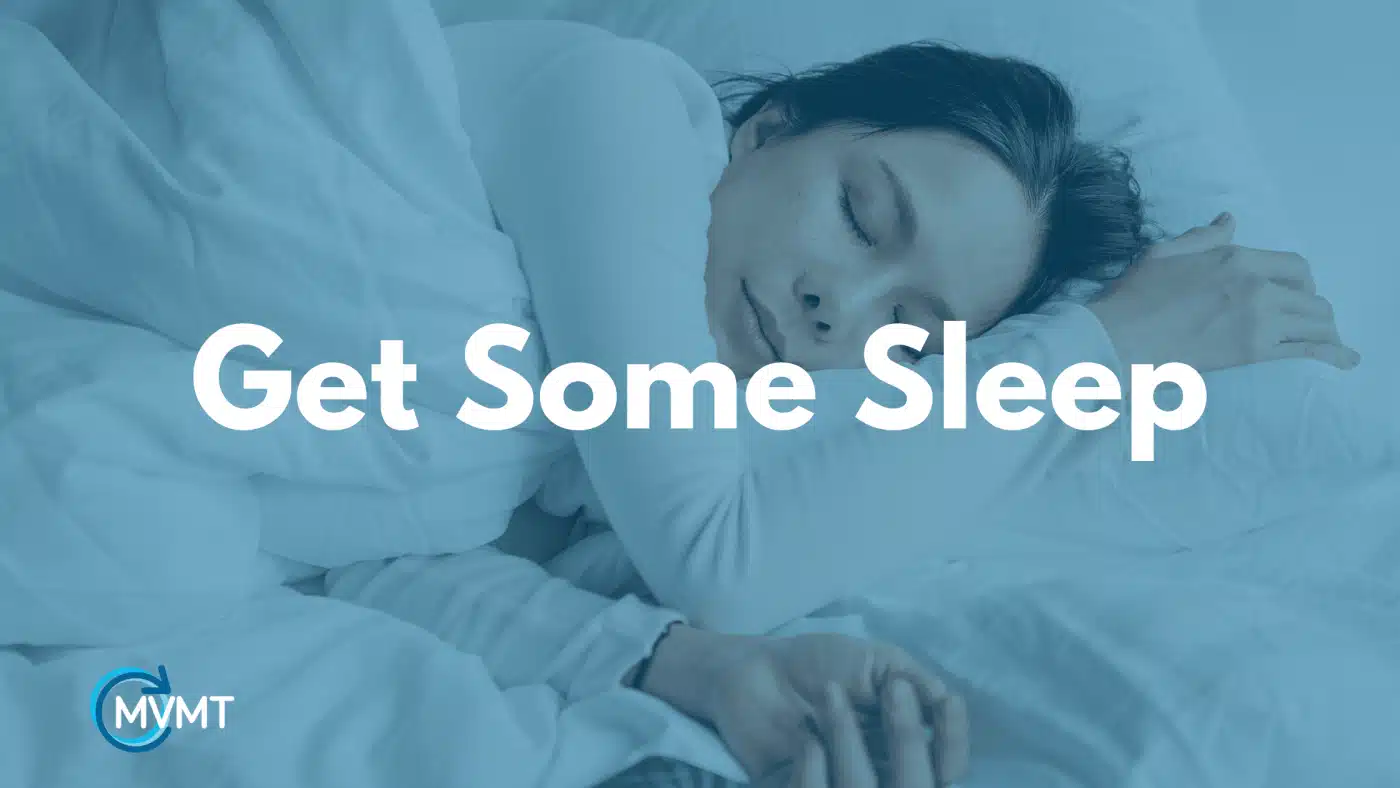Get Some Sleep

Are you getting enough sleep? Whether we’re recovering from an injury, a recent illness, a hard workout or just a long day at work, getting enough quality sleep is important for our wellbeing. This blog is Part 1 of a series of articles, inspired from the Taming Pain course by Cheryl Wardlaw, PT. You can purchase her book of the same title, here.
If you’re not sleeping, you’re not healing! Studies have shown that our bodies do the bulk of healing while we’re in deep sleep. Many factors can disrupt that important sleep pattern, so it’s important to understand them.
I Can’t Sleep
Insomnia is the inability to fall and stay asleep, or difficulty going back to sleep if you wake up. Some symptoms that are indicators of insomnia: difficulty falling asleep, frequently waking up, unable to fall back asleep, tired in the morning, sleepy during the day, irritability, difficulty concentrating. If you wear a smart watch or a fitness tracker, you may actually have some solid data on your sleep patterns.
So, why aren’t you sleeping? Many people need medications to help them sleep. But for many of us, it may be due in part to our behaviors and activities around bedtime.
Sanctuary
Firstly, your bedroom should be a hibernation cave – a sanctuary for sleep. The room should be dark, cool and quiet. Your mattress and pillows are also a major factor. They should support all areas of your body, keeping you in a neutral position without creating areas of shear or compression. We often move during sleep because we’re trying to find a position of comfort! Your physical therapist should be able to help you find a good sleeping position.
Secondly, your bedroom should only be used for sleeping! Ok – there’s another activity it should be used for, but that’s not covered here. (wink wink) Your bed should not be used as a lounge, watching hours of television, or worse – as an office. When we train our brain that bed = sleep, we’re poised to win the insomnia battle. Finally, you know when you have to wake up. Count back 8 hours and try to get to bed on time. It also helps to have a consistent bedtime.
The Wind Down
What happens in the 2-6 hours before bedtime is important. Avoid screens on your phone or computer, as the blue light is stimulating to your brain. Meals should be completed at least 2 hours before bedtime, and exercise should be done by 4 hours before bedtime. Also, caffeine, alcohol and smoking should cease within 6 hours of hitting the sack.
Training our brains to wind down from the day is important. Reading is a great alternative to watching TV – just make sure that you’re not doing it in bed. Meditation can also help to quiet your mind and prepare you for sleep. If you find that you haven’t fallen asleep within 30 minutes of getting into bed – get up!
A Little Help
Melatonin is a hormone produced by the pituitary gland in our brain that helps us to sleep. Your body should be producing melatonin about 30-60 minutes before bedtime, but for many reasons, it may not be. Melatonin can be found in many health food or drug stores and might be a good supplement to help you sleep, especially if you’re traveling.
Concentrated Tart Cherry Juice has the highest amount of antioxidants of any fruit, which makes it an excellent anti-inflammatory. It also helps the brain to produce serotonin, another hormone that helps us to sleep. Taking about 2 tablespoons 30-60 minutes before bed ca.n also help with falling asleep. Be aware: tart cherry juice is a natural blood thinner, so discontinue use before surgical procedures. Black Raspberries may be a better alternative if you’re on prescription blood thinners. If you’re diabetic, please also check the sugar content of tart cherry juice.
Other Factors
Other medical conditions can also interfere with sleep patterns. You should talk with your primary physician to rule out sleep apnea, Alpha Delta sleep, Restless Leg Syndrome, acid reflux, or gallbladder problems, or get them treated if they’re present.
It may take a week or so for your sleep patterns to change. It’s difficult to change – as is your sleeping position – but it’s possible, with concerted effort and consistency.
Make sure you talk with your physical therapist about your sleep patterns, and how it may be affecting your current injury. If you’ve got questions about an injury or would like to move better, simply call us at (646) 430-5717, or email us at info@mvmtpt.com. We’re here to answer your questions and help you return to your active life!
